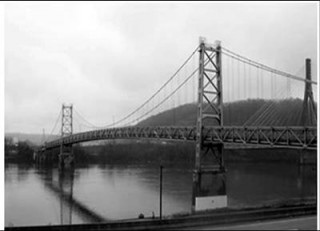In 2007, an eight-lane, steel truss arch- Minneapolis I-35W bridge collapsed into Mississippi River within 13 sec. The reason for the devastation however was not clearly resolved. Sabotage could not have been the reason for the I-35 bridge collapse. Almost 600,000 U.S bridges measure 20 ft.
 The Ft. Steuben Bridge, built in 1929, in Steubenville, Ohio.
The Ft. Steuben Bridge, built in 1929, in Steubenville, Ohio.
In collaboration with the Federal Highway Administration and the U.S. Army Corps of Engineers Engineer Research and Development Center, the Department of Homeland Security’s Science and Technology Directorate (S&T) will perform experiments to evaluate the potential liability of the deteriorating structural components of steel bridges.
The seminal research throws light on the reaction of materials, designs and connection structures in aging bridges to IEDs, intense fires, kinetic impact, and other explosives. DHS S&T supports other initiatives besides vulnerability analysis for devising several efficient cost-effective approaches to make the bridges more strong. Following the collection of data from these researches, various computational models can be upgraded and incorporated with engineering software for building stronger bridges.
Departments of Transportation and bridge authorities across the state have collected bridge specimens from the NY State - Lake Champlain-based Crown Point Bridge and the Ohio-based Ft. Steuben Bridge for research purpose. These specimens will then be tested in specific facilities such as in Ft. Polk, LA, where explosive tests were conducted recently. The field tests conducted at the Ft. Steuben has helped determine the in situ bridge behavior. Furthermore, cables and steel tower sections were collected from the recently-demolished Ft. Steuben Bridge. From these specimens, the characteristics of materials and vulnerabilities during blasts can be determined.
Majority of U.S. bridges under county authorities, regional authorities, private authorities, state departments of transportation, or local municipalities have been constructed based on codes and standards approved by the American Association of State Highway Transportation Officials (AASHTO), facilitating further researches.
Source: http://www.dhs.gov/